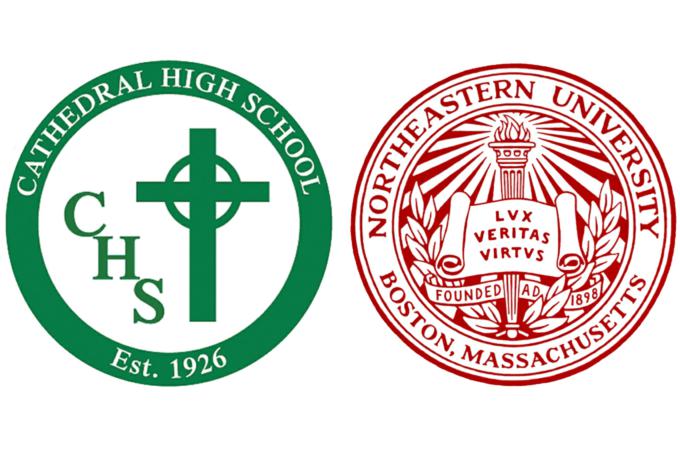Cathedral High, Northeastern partner on experiential education programs
BOSTON -- For years, Cathedral High School in Boston has fostered partnerships with local groups and organizations, creating mutually beneficial connections that encouraged students to gain real-world experience by working or volunteering in the community. Its experiential education methods have appeared to have worked; the grade 7 to 12 school has long retained a 100 percent graduation rate, and many of its graduates go on to attain four-year degrees.
Looking to expand upon that model, Cathedral is now working with Northeastern University, known for its experiential learning opportunities, and is taking part in a new program offered by the university specifically for K-12 schools.
Launched last year, Northeastern's Network of Experiential Learning Teachers (NExT) program was developed to help participating K-12 schools adapt and utilize a model of experiential learning, explained Mary Loeffelholz, Dean of the school's College of Professional Studies, May 21 in a joint telephone interview with Cathedral Head of School Oscar Santos.
"We're convinced that experiential learning is physically rooted in the science of how people learn, it's an incredibly powerful mode of learning, and it's one that we ought to be connecting with K-12 systems about," she said.
Northeastern has long promoted its own co-op program, which yearly sees thousands of students working at organizations worldwide to get real-world experience and see firsthand what life and work after school might be like.
Through its NExT program, Northeastern has connected with dozens of educators, including those from Cathedral High School, to offer support, advice, and ideas on how to implement similar programs in their own schools. The hope is that the program will ultimately give Northeastern a deeper understanding of the effectiveness of such learning methods at lower levels of learning.
At Cathedral, a pilot school for the program, Loeffelholz said, "we've dug in deeply," having faculty from the College of Professional Studies' Graduate School of Education "work with Cathedral on designing new curricula with teachers, helping prepare teachers to move into a project-based learning curriculum across the entire school," and working on possibly developing additional partnerships "that might include dual-enrollment."
Loeffelholz also mentioned the involvement of Cathedral High School in Northeastern's partnership with the Boston Ballet, a fairly recent partnership that allows dancers the opportunity to earn bachelor's or advanced degrees while continuing demanding practice and performance schedules.
Speaking on the dancers, Loeffelholz said that "Cathedral will be how they make their way through high school."
That partnership, explained Santos, is one that Cathedral is particularly excited about.
"It really allows us to have what I would say is a professional school," he said. Santos estimated that Cathedral might see "about five or 10 students with the Boston Ballet, maybe a little bit more," beginning in the coming school year, which he said is being viewed as a "pilot year."
During the pilot year, Santos said the focus will be on forming Cathedral teachers into "entrepreneurial-based educators," educators that can comfortably and effectively work with an experiential learning model and, ultimately, offer "students more choice and voice during project-based learning."
"We're excited about this, we think it's an innovative approach to support learning," said Santos.
"We couldn't be happier with the partnership we have with Northeastern," he added.
Currently, Cathedral High School is also in the process of finishing construction on a new 15,000 square foot Applied Learning Center adjacent to the school. The new space will incorporate STEAM-based learning, allowing students to study and gain hands-on experience in subjects such as robotics, coding, and graphic design.
With the center due to be completed this summer, "the timing is perfect," said Santos.



















